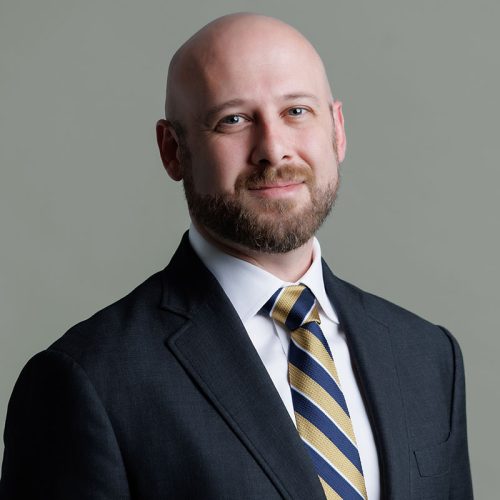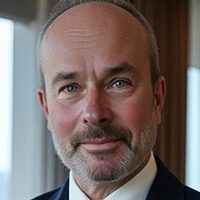
Thailand’s Entertainment Complexes
6 August, 2025
Thailand Integrated Resorts: A Sustainable Approach
22 August, 2025Winna Media Insights
12 August, 2025
Paul Volodarsky: Thailand's Gaming Laws Must Be Unique
The make-up of the Kingdom’s society, tourist market and infrastructure means building a unique gaming set-up – but proponents need to work hard to bring the public with them.

Paul Volodarsky is the Bangkok-based Head of Regional Real Estate Practice with the international law firm DFDL that specialises in developing markets. He looks at the real estate market in Southeast Asia, focusing on corporate structuring for real estate investment, hotel management, agreement negotiation and drafting, industrial and retail property acquisitions, data center development, and construction contracts. In advising clients, he strives to understand investment goals as a priority and to identify creative solutions to achieve the desired outcome.
Paul Volodarsky LinkedIn
As the Thai administration considers how to reframe the Entertainment Complex (EC) Bill withdrawn from the legislative process in July, it is a reminder that the country has a unique logistical, economic and social make-up. To accommodate each of these factors, the Thai gaming model also needs to be a one-off.
To start, although careful to say it’s his personal opinion, Paul believes there’s a strong case for centralised locations for gaming. These locales would have a concentration of facilities to provide gaming and ancillary services like hotels and entertainment to attract the “right type” of players.
That’s not necessarily excluding other areas of the country, but “If you’re going to attract the volume, everything is logistics.” A cogent location strategy would have a knock-on boost to the AML and the transparency of the regulatory framework that the larger international operators want to see.
And even though global operators will ultimately navigate the law in whatever form it takes, a clear path around the enforcement of agreed legal frameworks limits the operators’ exposure to risk from the actions of bad actors, says Paul.

A vision for Foreign Players
Thailand’s vision resembles Singapore’s; mostly geared to foreign players with fairly strict entry barriers for local people. It’s a vision for a custom-made Thai gaming model – concentrating operations in specific locations, leveraging existing inflows of tourists by offering them another reason to visit, wrapped up in a transparent regulatory framework to attract the “right type” of operators and players.
Lawmakers are now tasked to tighten the earlier EC legislation to create that model. On top of giving the operators a clear path to the future, another fundamental goal is to overcome the moral and religious objections of many Thai citizens to gambling. Equally important is to unequivocally state the cash benefits to the economy, national and local infrastructure and society gaming can bring.
“The disconnect with the public is that there’s an understanding that this could come with social ills. But the legislation hasn’t addressed what tax revenue will come from the gaming operations; how that revenue will be used to improve public facilities and infrastructure such as schools, roads, drainage systems, waste water management, flooding management and how that revenue is tied to specific social improvement.
“That’s an area that can be used to change public opinion. I don’t think that the details around whether 10% or 5% of the complex is being used for gambling are breaking through to the public. From what I am seeing, the opposition is strictly on the basis that gambling is a sin from a religious perspective,” Paul observes.
Anecdotal feedback from Paul’s conversation with a wide range of Thai people also centres on concerns that they’ll shoulder the financial burden of the extra costs from treating the effects of problem gambling.

Channelling tax revenues to deserving causes, in a transparent way.
And yet Thais who oppose gambling, like their counterparts globally, happily accommodate lotteries which encourage people to bet and win a prize if their number is called. It is acceptable to the public because they know the money raised goes to specific social causes, and the ticket sellers are people with disabilities.
“I don’t think the public opposition is around how the legislation is drafted; the primary thing I see at present is they have not clearly, in the legislation, tied the revenue which is generated by this activity by the government to specific improvements of social improvements,” Paul believes.
If they do, the Thai government could then candidly say that although it realises that legalised gambling will lead to an increase in “social ills”, that’s going to be outweighed by the social problems tax revenues can address and how it could improve opportunities for groups and individuals in society.
Potentially, a committee could be set up that decides where money generated by gambling can be channelled to deserving causes in a transparent way.
He advises that, “There should be guidance in that legislation indicating that tax revenues from these sources are going to go towards resolving issues, including an increased police and security presence, building infrastructure, improving education opportunities, opening treatment centres, whatever needs to be done to resolve the perceived risks of legalising gambling.”
In the sensitive Thai political environment in 2025, opinions have been polarised. Paul’s view is that a major effort needs to be made to shift public opinion, with polls showing the majority of respondents oppose legalised gambling. Not only are changes needed in the legislation to reflect public concern, but they also need to persuade the opposing factions in the Thai ruling class.
“The government needs to get more of the Thai parliament aligned with this strategy and plan before they can look and say, ‘How are we going to address the public viewpoint? ‘”



